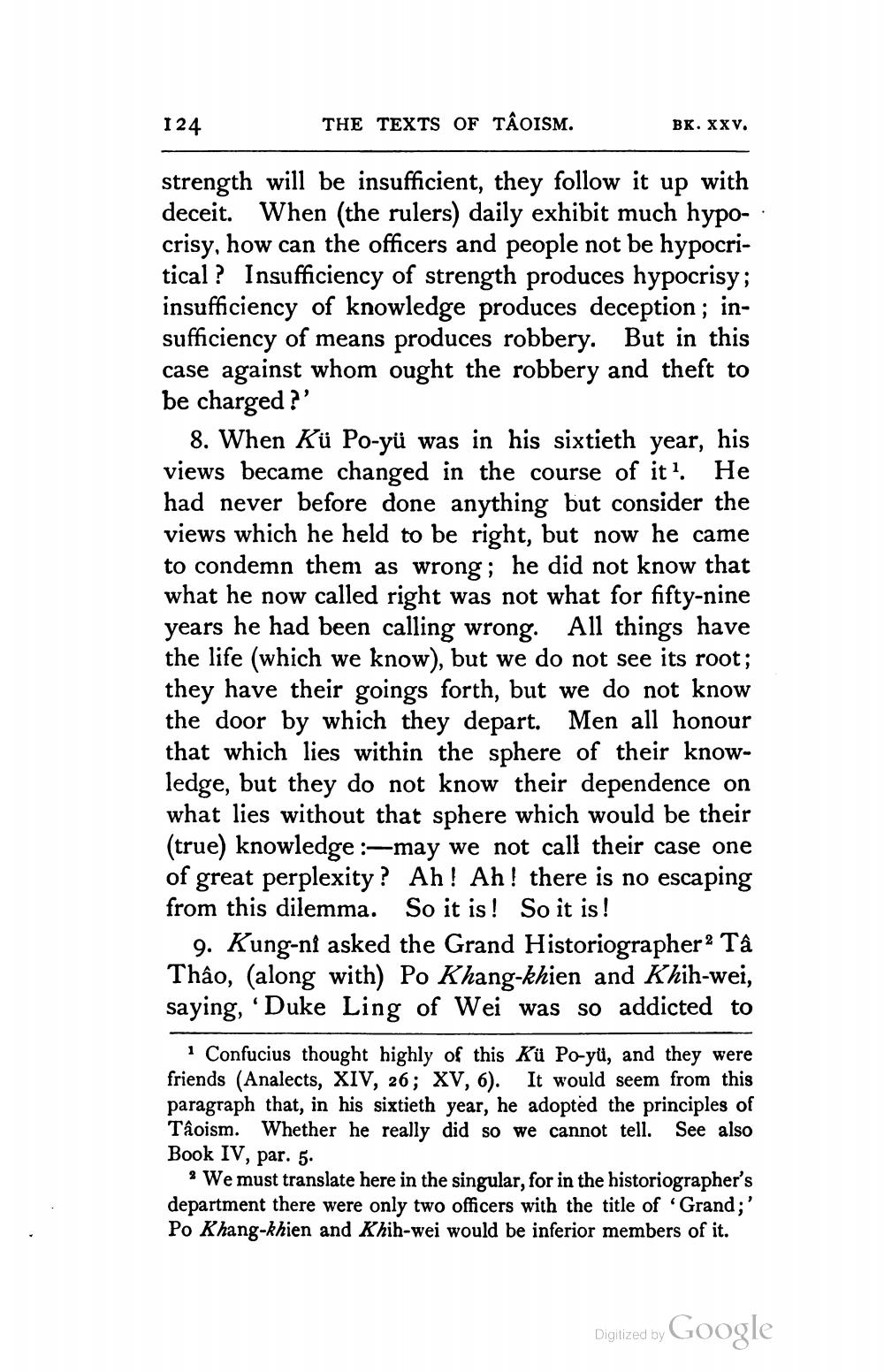________________
THE TEXTS OF TAOISM.
strength will be insufficient, they follow it up with deceit. When (the rulers) daily exhibit much hypocrisy, how can the officers and people not be hypocritical? Insufficiency of strength produces hypocrisy ; insufficiency of knowledge produces deception; insufficiency of means produces robbery. But in this case against whom ought the robbery and theft to be charged?'
124
BK. XXV.
8. When Kü Po-yü was in his sixtieth year, his views became changed in the course of it'. He had never before done anything but consider the views which he held to be right, but now he came to condemn them as wrong; he did not know that what he now called right was not what for fifty-nine years he had been calling wrong. All things have the life (which we know), but we do not see its root; they have their goings forth, but we do not know the door by which they depart. Men all honour that which lies within the sphere of their knowledge, but they do not know their dependence on what lies without that sphere which would be their (true) knowledge:-may we not call their case one of great perplexity? Ah! Ah! there is no escaping from this dilemma. So it is! So it is!
9. Kung-ni asked the Grand Historiographer2 Tâ Thâo, (along with) Po Khang-khien and Khih-wei, saying, 'Duke Ling of Wei was so addicted to
1 Confucius thought highly of this Kü Po-yü, and they were friends (Analects, XIV, 26; XV, 6). It would seem from this paragraph that, in his sixtieth year, he adopted the principles of Tâoism. Whether he really did so we cannot tell. See also Book IV, par. 5.
2 We must translate here in the singular, for in the historiographer's department there were only two officers with the title of 'Grand;' Po Khang-khien and Khih-wei would be inferior members of it.
Digitized by Google




